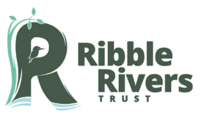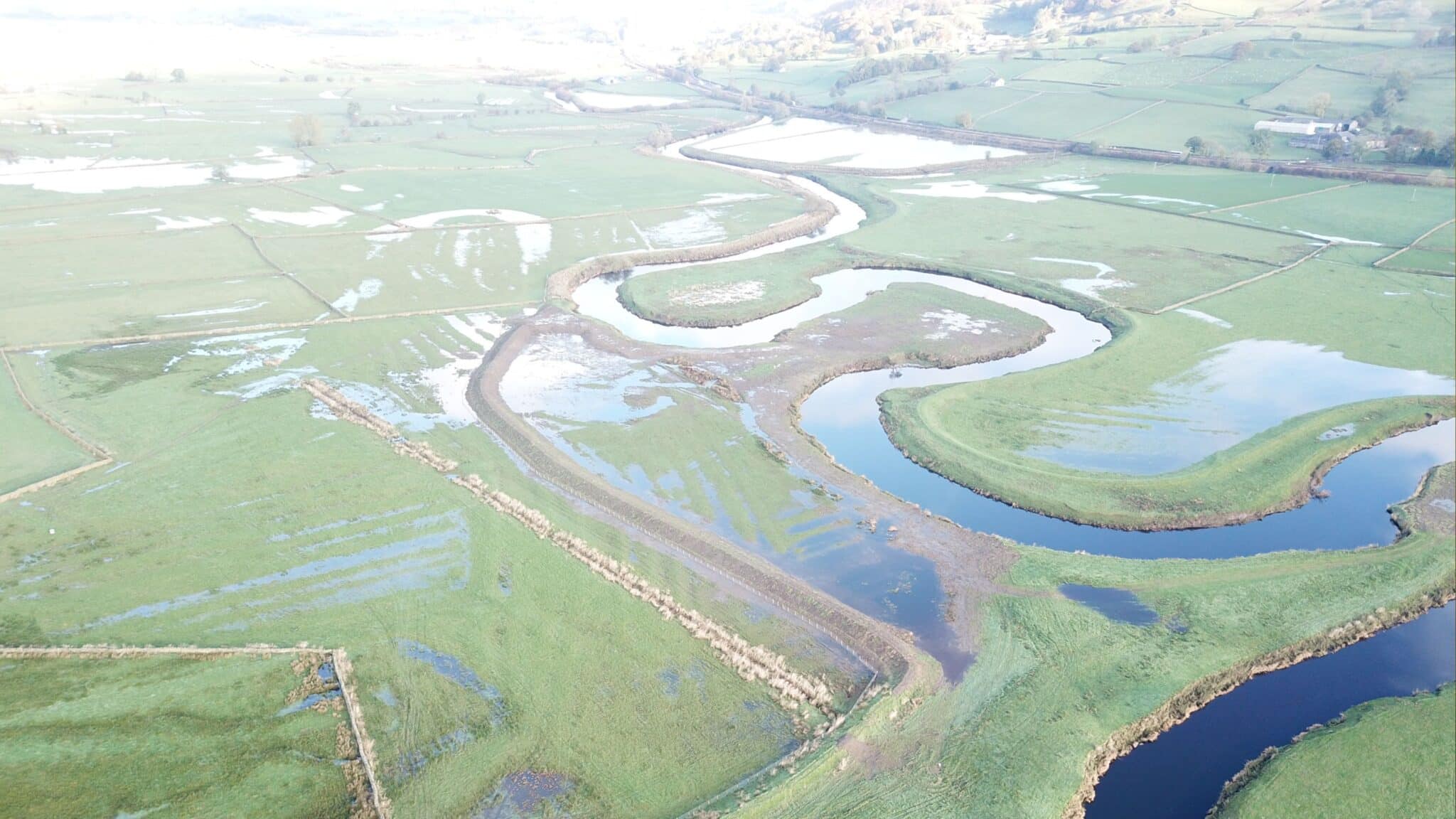
World Water Day 2024: Remarkable Rivers
For centuries, rivers have been a key part of human life. From helping our ancestors choose strategic locations for settlements, to revolutionising industrial processes, and helping us produce the food and water we need to survive.
Of course, rivers are still influencing our lives here in the UK as a key part of our drinking water infrastructure, agriculture, transport, and wellbeing.
So, this World Water Day, let’s focus on rivers and their vital role in our lives. Acting as the arteries that circulate life-giving water throughout our ecosystems.
Providing Vital Drinking Water
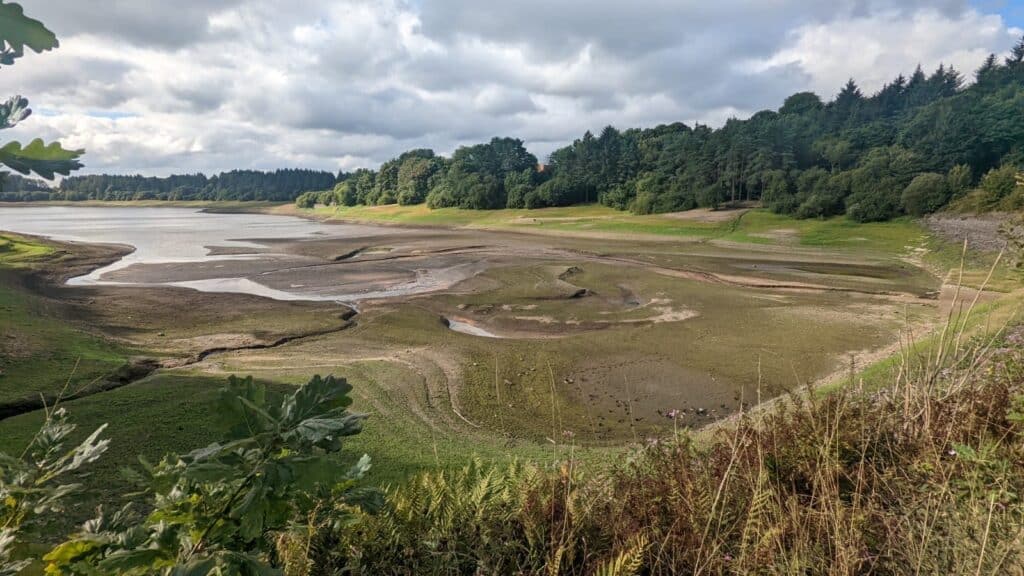
In the Ribble catchment, rivers are not just picturesque landscapes; they are lifelines. Whilst the catchment is home to around 1.25 million people, many more rely on our rain rich region for water. Whilst aquifers are more common in the South, two thirds of Northerners get their tap water from reservoirs or rivers. This means that our rivers serve as primary sources of drinking water, ensuring that communities have access to clean, fresh water vital for their survival. It goes without saying that, without these rivers, our ability to thrive would be severely compromised.
But it’s not just drinking water. Think about your water use, and you’ll soon realise that you rely on rivers for bathing, flushing the loo, watering your plants, washing your clothes, and much more.
It might be hard to believe, but we’re in serious danger of overstretching our water supply. Even in winter, our region uses more water than we can collect.
Mitigating Flood Risks for Safety
On the other end of the scale, we have flooding. Whilst droughts are becoming more common in summer, floods are also becoming more frequent in winter.
Luckily, well-functioning rivers act as natural flood defences, safeguarding communities from the devastating impacts of flooding. This is called Natural Flood Management, or NFM. Essentially, it’s a way of using natural processes to collect water, hold it back, and release it slowly. This helps to reduce flood peaks, protecting communities.
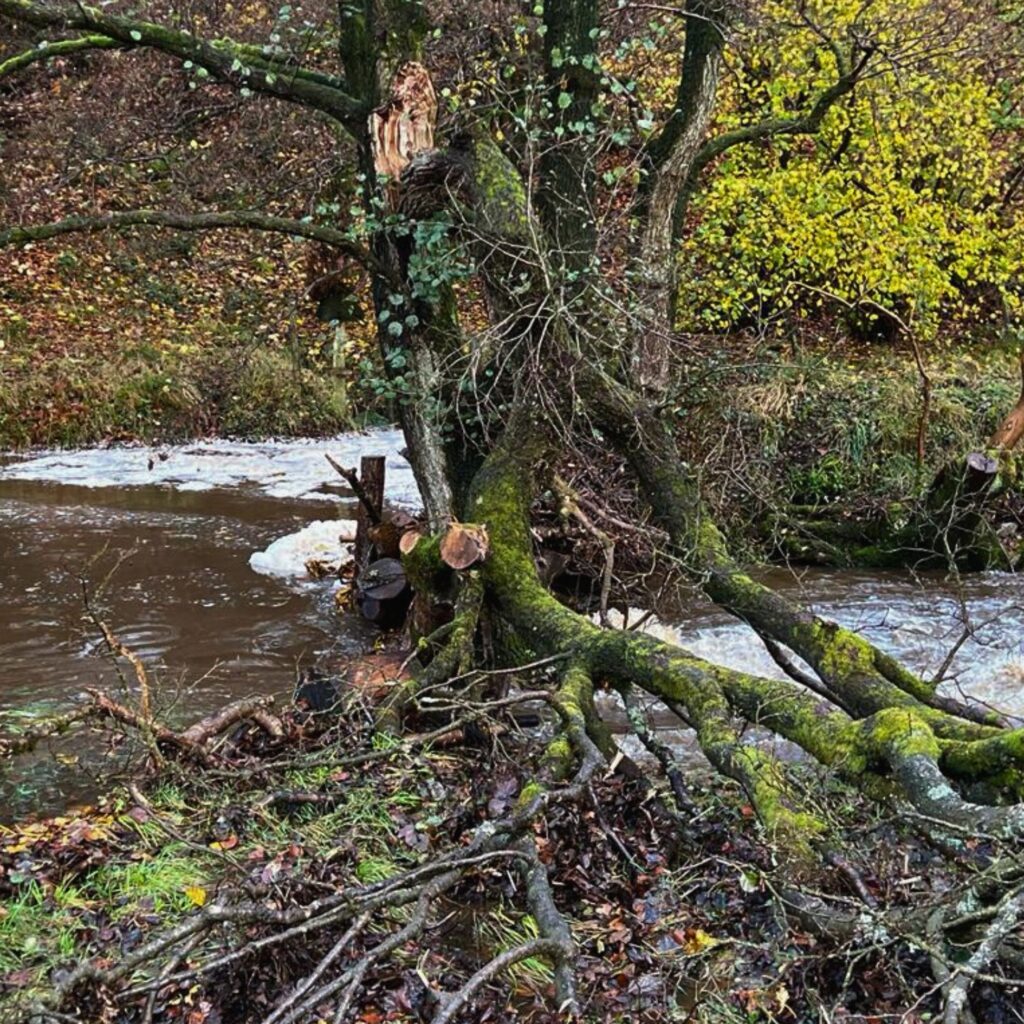
Through projects like the Room for Rivers initiative, Ribble Rivers Trust is working tirelessly to restore natural floodplains and wetlands, allowing rivers to absorb excess water and mitigate flood risks effectively.
Promoting Mental and Physical Health
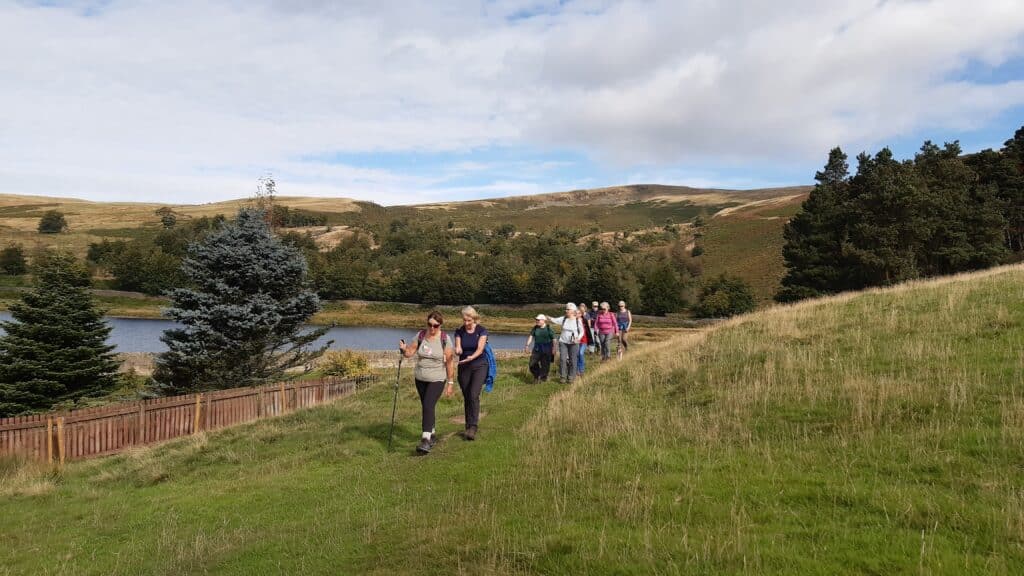
In fact, numerous studies have shown that rivers, and other natural habitats, have been shown to improve our mood, reduce blood pressure and heart rate, improve attention spans, and help us to be more resilient to stress.
Rivers offer more than just practical benefits; they provide invaluable spaces for recreation and relaxation, promoting both mental and physical well-being. Whether it’s a tranquil walk along the riverbank, a thrilling day of fishing, or an exhilarating paddle down its currents, connecting with nature by the riverside has been shown to improve overall health.
It’s not completely clear why rivers, and wildlife affect us like this. But some reasons are clearer than others; after all who doesn’t love a frosty walk through crisp autumnal leaves, the cool of a river on a hot summer day, or the sight of an unexpected blackbird hopping from hedge to hedge as it sings its song.
Sustaining Biodiversity
Freshwater habitats, including rivers, only actually cover just under 1% of our planet. However, they support an incredible one third of animals and 40% of fish species. UK rivers are a little less diverse. However, they are still home to approximately 10% of the UK’s species, and they’re utilised by many more.
The Ribble catchments rivers provide essential habitats and sustenance for a diverse array of species, including the majestic otters, the iconic Atlantic salmon, and the elusive European eels. The good news is that the more diverse our habitats are, the more diverse the wildlife they support. By protecting and restoring river ecosystems, Ribble Rivers Trust is not only preserving these species but also safeguarding the delicate balance of our natural world.
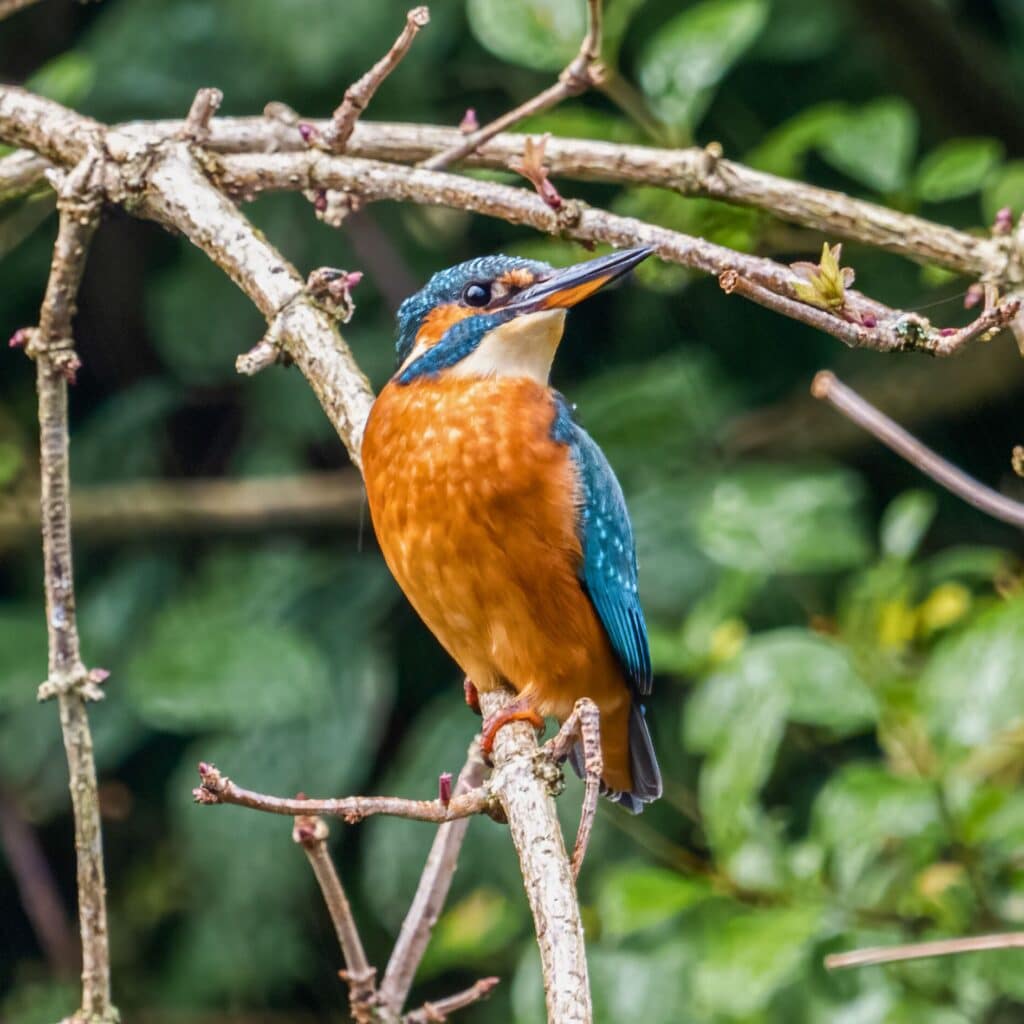
Taking Action to Protect Our Rivers
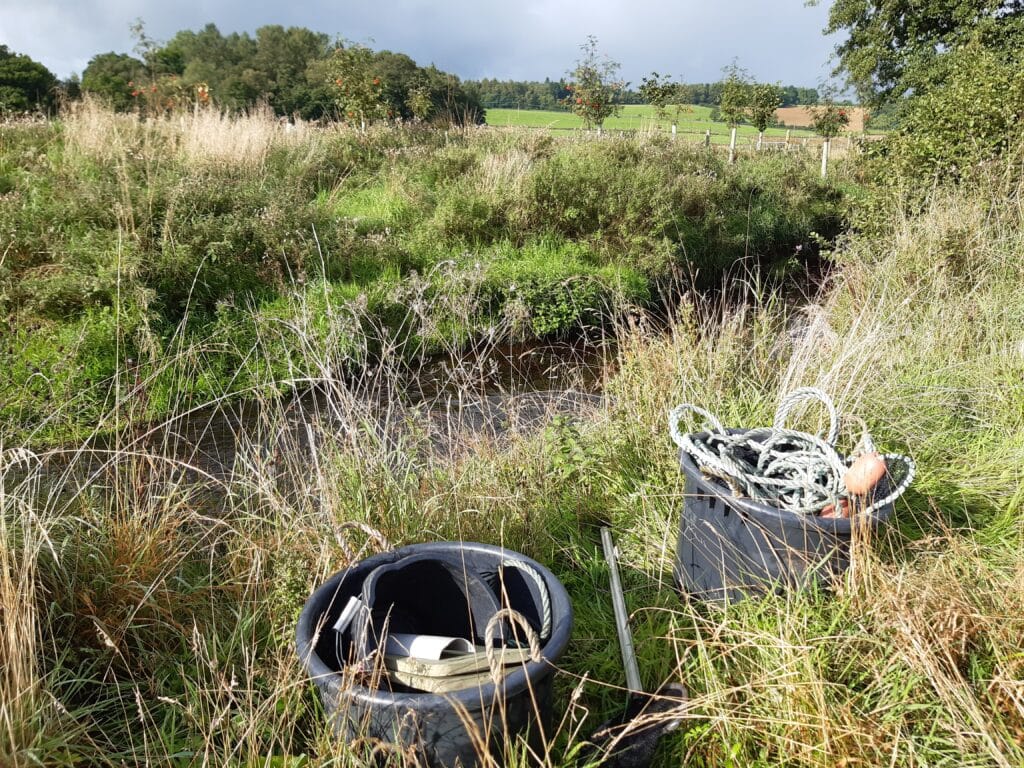
Ribble Rivers Trust is at the forefront of conservation efforts in the Ribble catchment, spearheading initiatives such as the Catchment Communities and Room for Rivers projects. These endeavours, part of the Ribble Revival campaign, focus on restoring degraded habitats, improving water quality, and engaging local communities in conservation efforts.
So, as we celebrate World Water Day, let’s remember the invaluable role that rivers play in our lives and ecosystems. By respecting and protecting our rivers, we can ensure a sustainable future for generations to come. You can support Ribble Rivers Trust’s vital work by becoming a supporter for just £3 a month or volunteering your time to help protect and restore our precious waterways.
